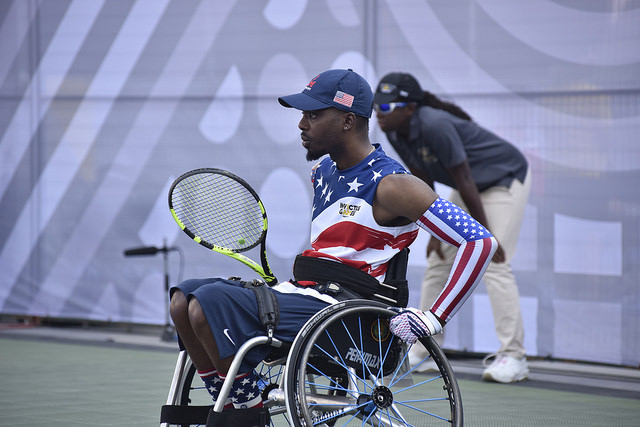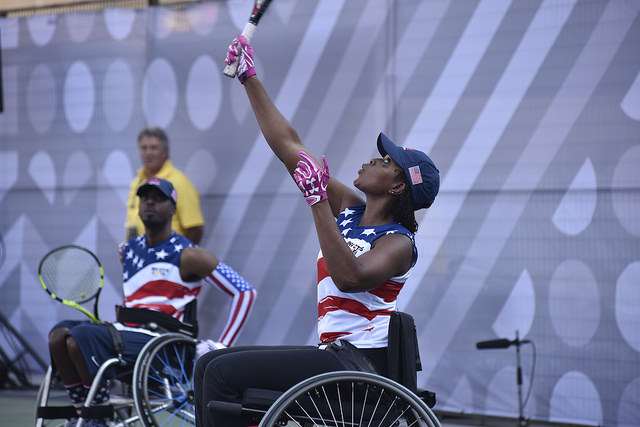A lot of lucky spectators discovered a new sport in the heart of downtown Toronto on Day 1 of the 2017 Invictus Games. Wheelchair tennis preliminaries played out on a hot and humid day in Nathan Phillips Square. It’s not your everyday tennis; it’s a game of precision hitting and wheelchair-positioning skills that take years to hone.
Wheelchair tennis competitor RJ Anderson of the United States describes it as a game of moving chess. And he loves chess. His movements are pre-calculated when serving the ball, but also when lining up his chair in time to receive the ball and be in a good position to strike with a full, powerful swing.
RJ grew up watching tennis greats like Pete Sampras and Andre Agassi, but he never played wheelchair tennis until a sports rehabilitation military camp in 2014.
“It was a challenge,” said RJ, on what drew him to wheelchair tennis. “It’s not an easy sport to pick up, but I really enjoy how difficult it was. Not everyone plays wheelchair tennis, so I felt it was a niche that I could do something with.” This is RJ’s third Invictus Games.

Wheelchair tennis follows the same rules as for the able-bodied game except for one difference: wheelchair tennis players are allowed two bounces before returning the ball instead of the usual one. The Invictus Games wheelchair tennis is a contested in pairs.
“By the nature of wheelchair tennis, it’s generally serve, return, and then the shot either goes in or out, and every so often you have a bit of a rally,” said UK wheelchair tennis competitor Alexander Krol. “The strategy is just keeping it in and letting the other side make the mistakes, and just try to be in the right place at the right time. And keep moving all the time.”
Fans didn’t miss the lack of rallies at all. They cheered loudly from the bleachers as players nailed the right hits and serves, like those wild curling fans reacting when their team’s stone slides onto the button.
RJ’s teammate Sharona Young is competing in her first Invictus Games, having only been in her wheelchair for two years. For her, building muscle memory for moving into position is key to her improving as an athlete. Patience is also vital. Sharona said that players sometimes learn the hard way by getting hit in the face or chest.

Win or lose, wheelchair tennis competitors are loving the positive energy from the noisy crowds.
“The fans have been amazing,” said RJ. “We’re playing in the centre of your city hall. It’s an amazing public showing, for every match has been sold out. It has been amazing to look up and see that Toronto has really showed up for this!”


